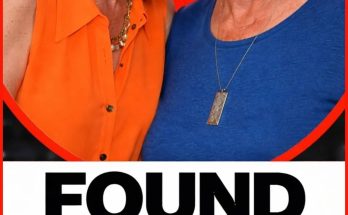Do Cortisone Shots Work for Acne?
Do Cortisone Shots Work for Acne?
To reduce the inflammation, swelling, and pain of cystic acne, a dermatologist can inject a diluted corticosteroid directly into a cyst.
This treatment is usually reserved for tender, swollen acne nodules, or cysts that aren’t responding to typical acne therapies. It can be very effective in shrinking nodules and cysts.
While a dermatologist may refer to the treatment as an intralesional corticosteroid injection, it’s widely known as a cortisone or steroid injection shot, or a cortisone injection.
Read on to learn more about the benefits and side effects of these injections.
A cortisone shot is the injection of a synthetic hormone. It’s used for short-term relief of inflammation and to shrink large cysts. The injections can be used on both the face and the body.
The shot, which is injected directly into an acne cyst or nodule, typically contains a small amount of a steroid, such as triamcinolone (Kenalog), a powerful anti-inflammatory.
Cysts and nodules may take weeks to resolve on their own. A steroid injection can reduce the swelling, redness and pain in a few days.
While this procedure can be quick and effective, there’s a possibility of side effects. These include:
- Pitting or thinning of the skin at the site of the injection. This can result in a visible depression where the cyst was. These depressions are often temporary and resolve on their own. Otherwise, your dermatologist may recommend dermal fillers.
- Hypopigmentation, an area of lighter than normal skin or a white spot. Over time, this often goes away on its own.
- Systemic effects from the steroid. This could be caused if more than the limit is injected and absorbed into the bloodstream.
You can get multiple injections in one session, with each injection going to a different area. You must wait about 6 weeks between injections in the same spot.
These injections are meant to be an occasional treatment for specific cysts and nodules. It’s not meant to be a regular part of your acne treatment or skin care regimen.
Acne is usually caused by your skin’s pores becoming clogged with dead skin cells and oil. Bacteria, such as Propionibacterium acnes (P. acnes), is also often involved.
Sometimes a clogged pore breaks deep inside the skin forming large tender, painful bumps known as cysts (pus filled bumps) or nodules (inflamed bumps). These bumps can last for weeks or longer.
Cystic acne, like other acne, is caused by the interaction of a number of different factors:
- Hormones. Testosterone, estrogen, and androgen are linked to cystic acne.
- Genetics. If one of your parents has cystic acne, you’re more likely to develop it.
- Environment. High humidity, excessive perspiration, makeup, lotions, and cleansers can cause cystic acne.
- Certain drugs and chemicals. Lithium, corticosteroids, isoniazid, and phenytoin are associated with cystic acne.
Other treatments your dermatologist may discuss with you include:
- isotretinoin
- antibiotics (tetracycline)
- topical retinoids (adapalene, tazarotene)
- spironolactone
- oral contraceptives (for women)
While cortisone injections aren’t meant to be used as a regular acne treatment, they can be very effective with cystic acne.
If you have large, red, painful bumps deep in your skin that don’t form a head, you may have cystic acne. Consult with a board-certified dermatologist about recommended treatments, including cortisone injections.
Also check with your insurance regarding coverage. Some policies may classify cortisone injections as a cosmetic treatment and not cover them.
Last medically reviewed on September 4, 2020





Warehouse Whim Online – The variety is excellent, and navigating the site feels seamless.